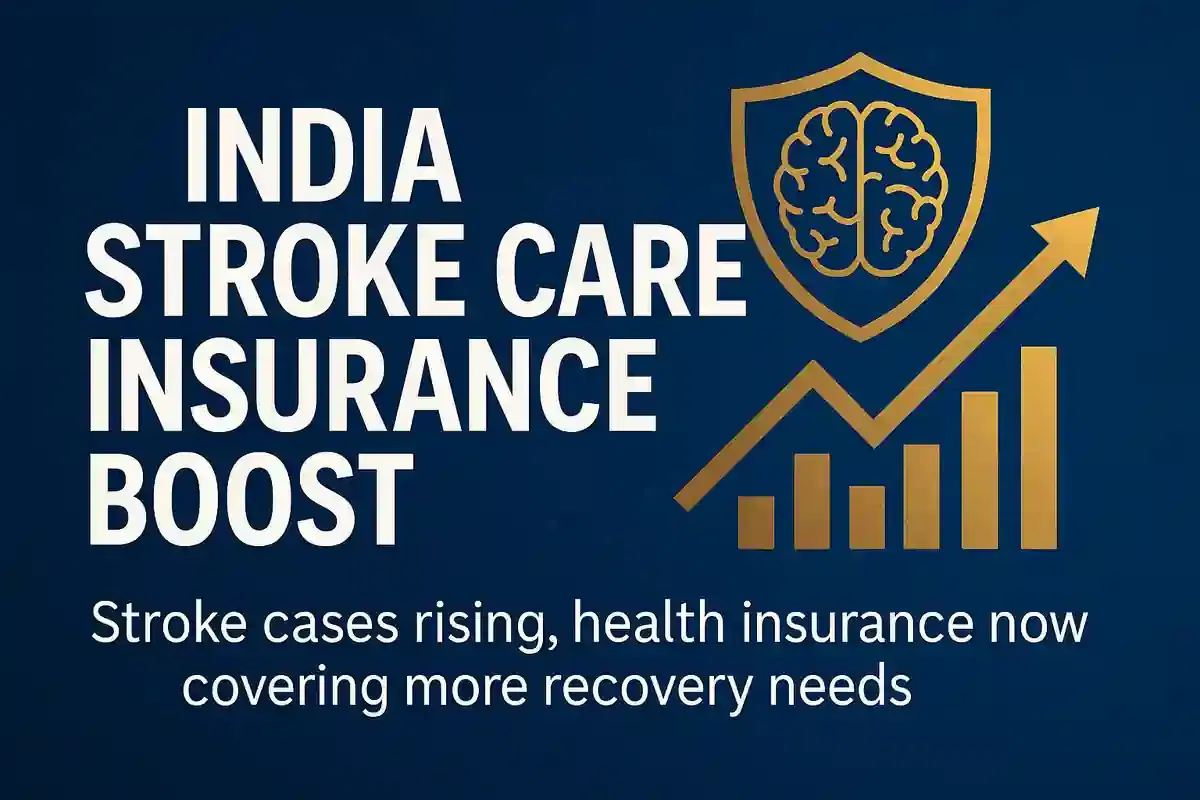Stroke Cases Rising in India, Insurers Expand Post-Treatment Coverage
Insurance
|
29th October 2025, 11:48 AM

▶
Short Description :
Detailed Coverage :
World Stroke Day highlights India's increasing stroke burden, with 1.5 to 1.8 million new cases yearly. While health insurance policies generally provide good coverage for the acute phase of stroke treatment and hospitalisation, there are significant gaps in financial support for long-term recovery.
Experts note that coverage for essential post-stroke rehabilitation services, including physiotherapy, mental health support, and extended care, is often limited or not explicitly included in standard policies.
To address these gaps, consumers are advised by industry professionals to select health insurance plans with extended pre- and post-hospitalisation coverage (up to 90 or 180 days) and to look for add-on benefits such as home care services, outpatient therapy, and tele-consultations. Critical illness riders or policies offering a lump-sum payout are also recommended to cover prolonged recovery expenses.
Insurers are responding by introducing new features. Some comprehensive policies now offer home physiotherapy, rehabilitation sessions, psychological counselling, and home care services. Benefit-based products providing lump-sum payouts for strokes resulting in permanent symptoms are also emerging to support income protection and recovery at home. Features like AYUSH-based recovery and extended post-hospitalisation benefits are also being added.
Impact: This evolving landscape is significant for the health insurance sector, driving product innovation and potentially increasing the demand for specialised post-stroke care services. It could lead to growth opportunities for insurers and healthcare providers focused on rehabilitation and long-term patient care. Impact Rating: 6/10
Difficult Terms: Stroke: A medical emergency where blood supply to part of the brain is interrupted or reduced, depriving brain tissue of oxygen and nutrients. Rehabilitation: The process of helping a person to recover from an illness or injury and return to normal life and improved health and functioning. Physiotherapy: A type of physical therapy used to improve movement, function, and mobility and reduce pain. Mental Health Support: Professional help provided to individuals dealing with psychological or emotional difficulties. Health Insurance Policy: A contract between an insurer and an individual, where the insurer agrees to pay for specified medical expenses in exchange for a premium. Acute Stroke: A sudden, severe onset of stroke symptoms requiring immediate medical attention. Critical Illness Rider: An optional add-on to a health insurance policy that provides a lump-sum payout upon diagnosis of a specified critical illness. Lump-sum Payout: A single, fixed payment made by an insurance company to the policyholder upon the occurrence of a covered event. Add-ons: Optional features or benefits that can be added to a base insurance policy for enhanced coverage. Outpatient Therapy: Medical treatment received at a healthcare facility without being admitted as an inpatient. Tele-consultations: Medical consultations conducted remotely using telecommunications technology. AYUSH: An acronym representing traditional Indian systems of medicine: Ayurveda, Yoga and Naturopathy, Unani, Siddha, and Homeopathy.